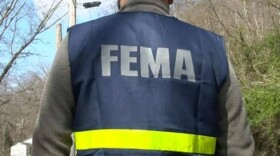The Supreme Court on Thursday made it easier for students with disabilities to sue to enforce their rights under the Americans with Disabilities Act and other laws enacted to ensure that disabled children get appropriate schooling.
Writing for a unanimous court, Chief Justice John Roberts said that while Thursday's decision may be narrow, that does not diminish its importance for a great many children with disabilities—children who face "daunting challenges on a daily basis."
"We hold today," he said, "that those challenges do not include having to satisfy a more stringent standard of proof than other plaintiffs" in discrimination cases.
At the center of the opinion was Ava Tharpe, a teenage girl who suffers from serious disabilities caused by a rare form of epilepsy. She has so many seizures, mostly in the morning hours, that her public school in Kentucky arranged her schedule to be in the afternoon only, including a teacher who gave her instruction at home in the early evening.
But when the Tharpe family moved to Minnesota for her father's job, her new school in the Twin Cities refused to accommodate her late-day schedule, so Ava was only getting two thirds of the instructional time in school that other kids were getting.
After years of litigation, the Osseo Area School system relented. But the Eighth Circuit Court of Appeals denied the Tharpes' claims for compensatory damages—essentially reimbursement of expenses, including experts, outside teachers, and lawyers needed to get equal treatment for their child. The appellate court said that the Tharpes did not meet the high standard of proof needed to prevail—specifically, the court said, they had failed to prove that the school system acted in" bad faith" or with "gross misjudgment." On Thursday, the Supreme Court reversed that ruling, calling its reasoning "wrong."
"This is bigger than our family," Aaron Tharpe, Ava's father, told NPR. Tharpe said the most important thing about the ruling is that it gives other families who don't have the resources he does, the tools to fight back.
"The battle for us has always been about other families and their right of access for their children to educational opportunities," Tharpe said, adding that now those families "have another tool that they can use to fight for those protections, fight for the right to access. It's extremely important."
A statement from the Osseo Area Schools noted that while the court overruled the showing of bad faith needed to prevail in this case, the justices did not specify what the standard should be.
That said, the language of the court's opinion strongly suggested that Congress has already made its view clear in the text of the statute by linking federal funding to specific protections for children with disabilities. Indeed, as Chief Justice Roberts observed, Congress at one point even amended the Individuals with Disabilities in Education Act to overturn a Supreme Court decision that had failed to interpret the statute in the expansive way Congress intended.
While Thursday's decision was unanimous, and joined by all of the justices, there were concurring opinions from the right and the left of the court. On the right, Justice Clarence Thomas, joined by Justice Brett Kavanaugh, left the door open for future rulings that might restrict the liability of schools.
And on the left, Justice Sonia Sotomayor, joined by Justice Ketanji Brown Jackson, said that the plain text of the law "reaches cases involving a failure to accommodate, even where no ill will or animus towards people with disabilities is present."
Copyright 2025 NPR









